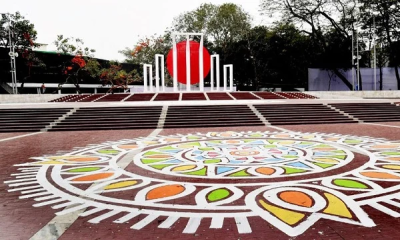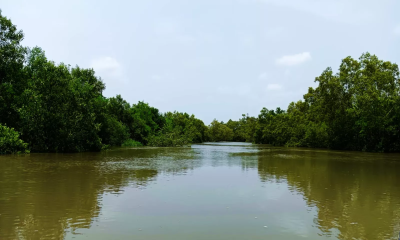Prime Minister Sheikh Hasina on Tuesday said it`s time to work together globally to achieve the public health goals outlined in the UN Sustainable Development Goals.
“This involves helping countries with less resources to improve their ability to handle health risks,” she said.
The prime minister said this while addressing the two-day International Conference on Public Health and Diplomacy held at Grand Ballroom, Hotel Pan Pacific Sonargaon, Dhaka.
Hasina said that the Covid-19 pandemic has shown that all are connected, regardless of how isolated they feel.
“None of us can be truly safe until we make sure everyone is safe. Now is the time to work together globally to achieve the public health goals outlined in Sustainable Development Goal-3 and Goal-17,” she said.
She mentioned that it is crucial to have a strong commitment from all countries and focused diplomatic efforts to achieve this.
“I believe Bangladesh will play a leading role in this effort, considering its past success in protecting public health and dealing with the impact of the Covid pandemic,” she said.
In this connection, the Prime Minister put forward five specific recommendations for regional cooperation.
These are:
First, further coordinate actions to ensure enhanced preparedness for and harmonised response to future health emergencies.
Second, work together to eliminate preventable communicable diseases and share good practices on addressing the growing non-communicable disease burdens;
Third, give attention to mainstreaming mental health in national health systems and also collaborate on fatal public health hazards like drowning and accidents.
Fourth, mobilise combined facilities for medical education and research, with particular focus on tackling tropical diseases further aggravated by climate impacts.
Fifth, must consider the health of mothers, children and adolescents as the benchmark of our achievements with SDG-3, with the aim of promoting Universal Health Coverage across the region.
“Let us work together to ensure that global health governance, with WHO at the center, can meaningfully serve our entire humanity in the next seventy-five years and beyond. Let us help each other and share our experiences,” she said.
PM Hasina said that Bangladesh did not forget about the 1.2 million Rohingyas who sought shelter from neighbouring Myanmar during the Covid pandemic period.
“With the help of development partners Bangladesh made extensive preparations to offer them regular check-ups, vaccinations, and healthcare services,” she said.
The PM said that it should not be forgotten that this huge population residing in Bangladesh has always been a humanitarian crisis and a security concern for this region.
“Only their safe and dignified return to Myanmar can ensure a sustainable solution to this crisis. And I hope that Myanmar will take back their nationals very soon,” she added.
Mentioning that Covid-19 pandemic hit Bangladesh like other countries in early 2020, the prime minister said that her country has been able to reduce the loss of human lives and keep the economy running due to the continuation of its long-standing activities in the health sector and the timely action of the government.
In this connection, she mentioned that with the help of development partners, Bangladesh was able to purchase and administer vaccines at the earliest.
“We’ve provided Covid-19 vaccination to 100 percent of eligible people in our country free of cost," she said.
She said that Bangladesh ranks among the top five countries in the world in overall Covid management and recovery.
Foreign Minister AK Abdul Momen, Health and Family Welfare Minister Zahid Maleque, Union Minister of Ministry of Health, Myanmar Thetkhaing Win, Bhutanese Health Minister Lyonpo Dasho Dechen Wangmo, Deputy Minister of Health, Maldives Safiyya Mohamed Saeed, Vice Minister for Foreign Affairs, Thailand Vijavat Israbhakdi and WHO Representative to Bangladesh Dr Bardan Jung Rana also spoke.
Health Services Division Secretary Dr Md Anwar Hossain Howlader delivered welcome speech while Foreign Secretary Masud Bin Momen gave introductory presentation.
An audio-visual presentation was also screened at the opening ceremony of the conference, jointly organised by ministry of foreign affairs and ministry of health and family welfare in cooperation with WHO.













-20260221022942.jpg)
-20260221022827.webp)



-20260220065859.jpeg)














